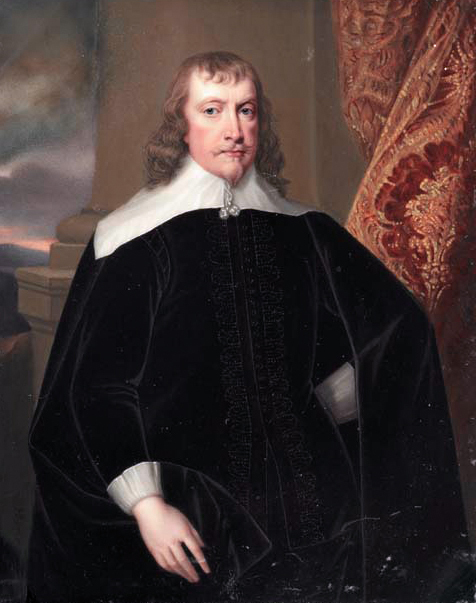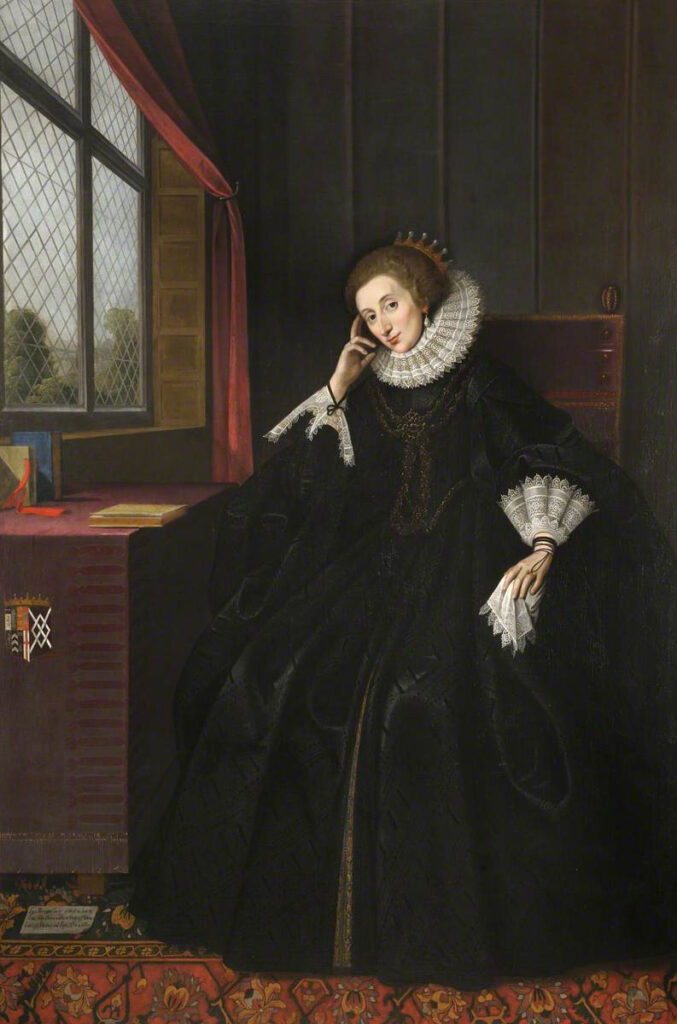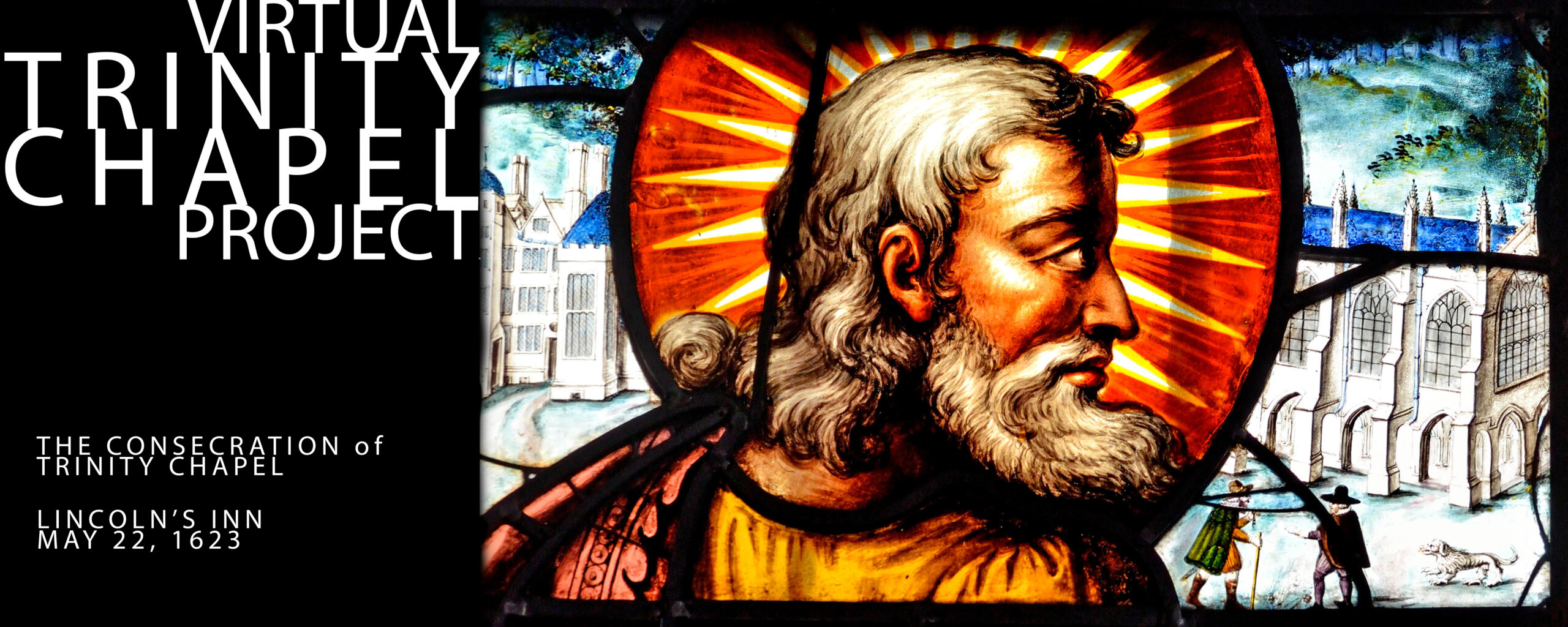The Earl’s Sermon Notes

Francis Russell, fourth Earl of Bedford
Francis Russell was the cousin of Edward Russell, third Earl of Bedford, who was married to Lucy Harrington, Lady Bedford, a close friend and patron of John Donne. Francis Russell became the fourth Earl of Bedford upon Edward’s death in 1627.

Woburn Abbey, HMC 20, is Francis Russell’s Commonplace book. Russell atttended the Consecration ceremony for Trinity Chapel and made notes on Donne’s Encaenia sermon, to wit (transcription by Sebastiaan Verweij, University of Bristol)
P. 4.
{{[77]}}| Dunn at consecration
of chapell Lincons Inn
John 10th 22.23
{{1}}Basell excusing hime self for staying so long befoer he came to consecrate the church sayd he consecrated another bey the way the tempell of the holy ghost
Barnant sayth our souls ar consecrated by the sperit our bodies by our faith our churches by our belief
{{2}}all holidays ar radically in the saboth Leuiti. 23 32 cales them saboths. holidays as thay ar elimented with seremonies yet ar thay animated with moralities. order and obediens the toe eliments insedent toe euery holiday
{{3}}2 rests in the saboth our rest from serving the world and gods rest ouer serving of hime. when Noe offered sacrefise sayd god found a sauor of rest 8 of Genesis
god infused not a morality upon the day of the saboth but uppon the duty of the saboth for then it could not haue bien changed and wher it is caled pactum perpetuum Exodus 31.16 sayth Austin it wase not euer lasting for the duration but in the duration for then it could not be intermited god wase as it were insellibatiue when he sayd faciamus but after he wase espoused to the church 2 cantekils 15 then he sayth capite uos take ye he delicats his churches
{{4}}when moses resewed the law of god then he had noe facsimile he could not make commaundements liek unto it but when he came to the outward work of the Tabernakell then he had a Iuxta semilitudine toe doe it according to the pattern he had seen. so for essentiall things we cann nether add nor deminish but for externall seruice we may doe things according to the patron
{{5}}Mordeca maks a holiday Nehemia: 9 and the Iews obseru it The Macabes by ane eclesiasticall pouer make ane Anniuersary selebration of the tempell and ouer sauior keapse it
{{6}}god loues to haue his courts keap once a weke at lest. ower prescribing god as wando derogates from his eternity nor a tempell to serue hime from his ubiquity
{{7}}The maniches hould the god of the ould Testament to be a poer god because he bids moses build hime a tabernakell and salamon a tempell
{{8}}ther is a lay dedication when the owners surrender it wpp to the Bishop and a sperituall one when the Bishop by prayer dedicate it toe God
{{[78]}}| noe exseption nede be taken betewn Lay and eclesiaticall here both lay and eclesiastical haue ane equall portion in the effusion and partisipation of christ blud
The leuits so the portion of the world that the world had noe portion in them yet thay the gretest portion in the world
{{1}}The widdow cast in moer then thou and yet you moer then the widdow, in casting in moer then you had hauing not the means to build the chapell
{{2}}Constantien in all his warse carued a dedicated Tabelnakell about hime
{{3}}Missa by the fathers understod litergy
{{4]}Ierimy saith the tempell is not only sanctuarium but sanctificium that maks men holy
The Angels when deliuerd the Apostels out of prisoun bid them goe in toe the tempell Acts 5.20
wheras wppon the building Salamons tempell had but a singell sellibration at that tiem and so Esdras and nehimias reedification of the tempell by [blank] and this of the macabes only erection of a new alter cast down by the gentilse ane Anniuersary remembrance and ouer sauior at it as […] […]
{{5}}befoer dauisd hand had bien in Vrias blud god sayd he should not build hime a tempel because his hand had bien in blud yet dauids hand neuer afoer that but in Iust warr
{{6}}Sume ages sume cal caulings sume cumplexions moer subiect to sins then others.
Fenis
[1] Royal Commission on Historical Manuscripts, Second Report, 1, no. 20; Beal, CELM identified two extracts: DnJ 4175-76.
